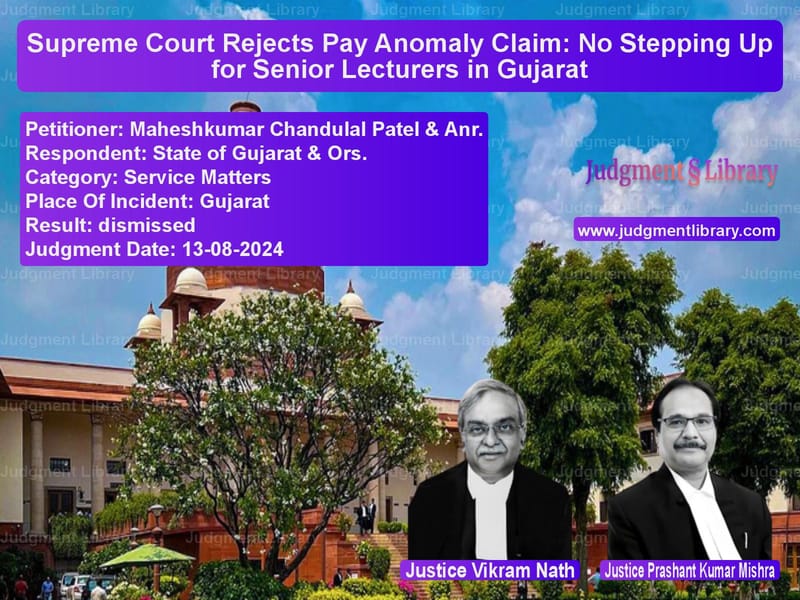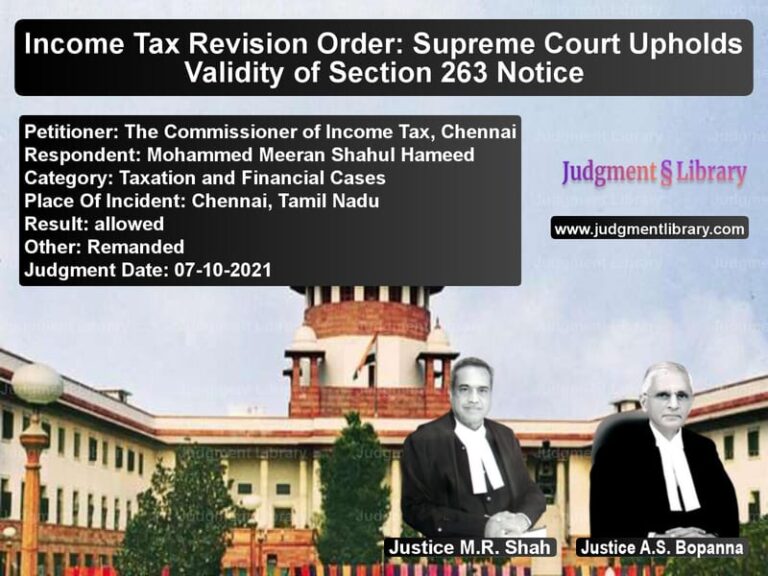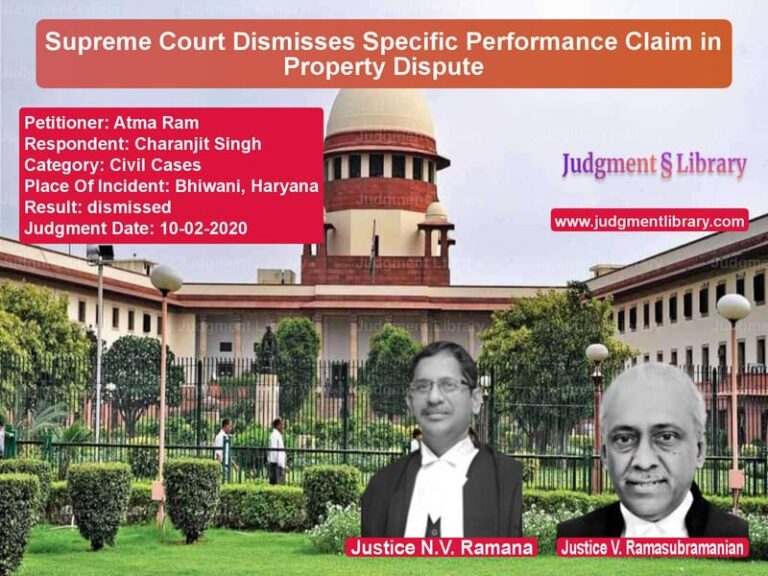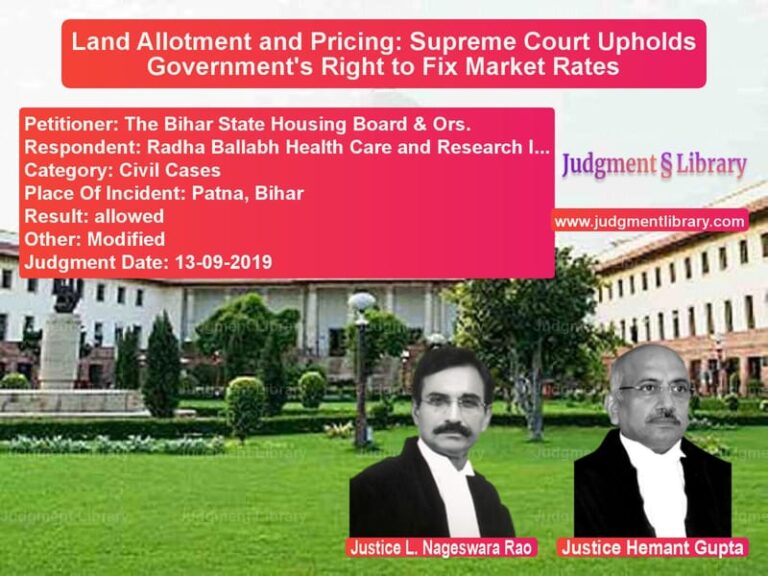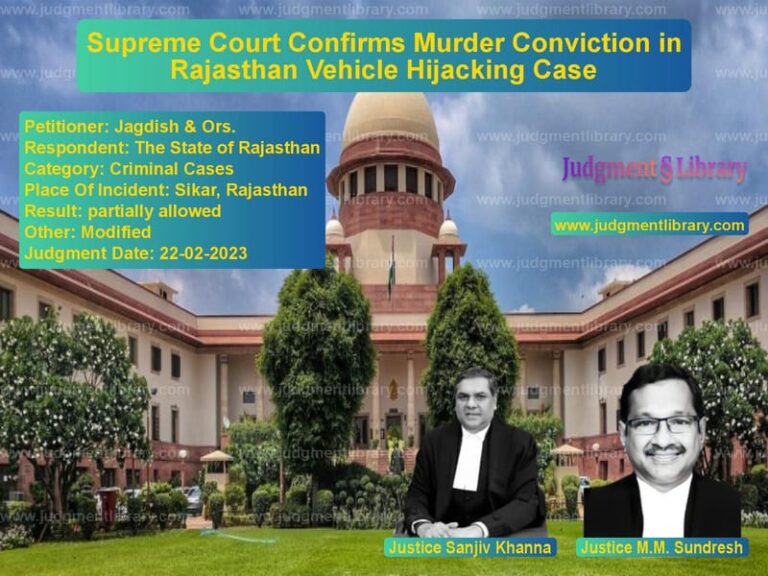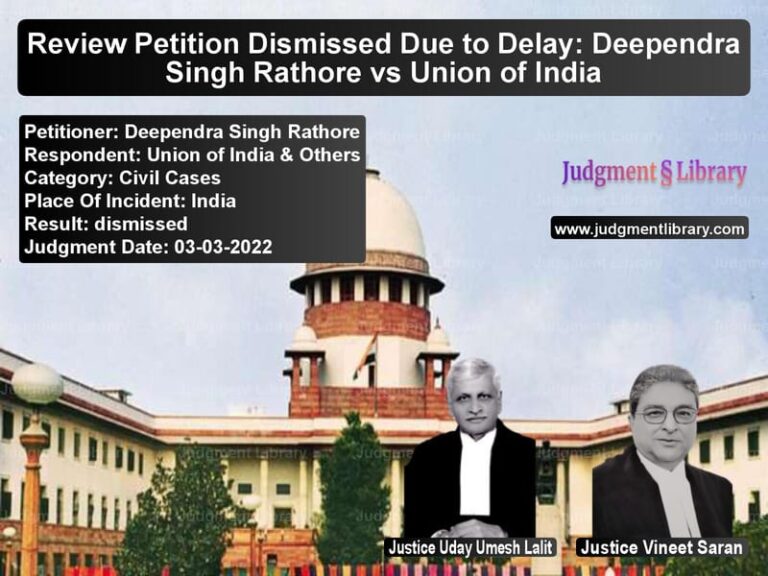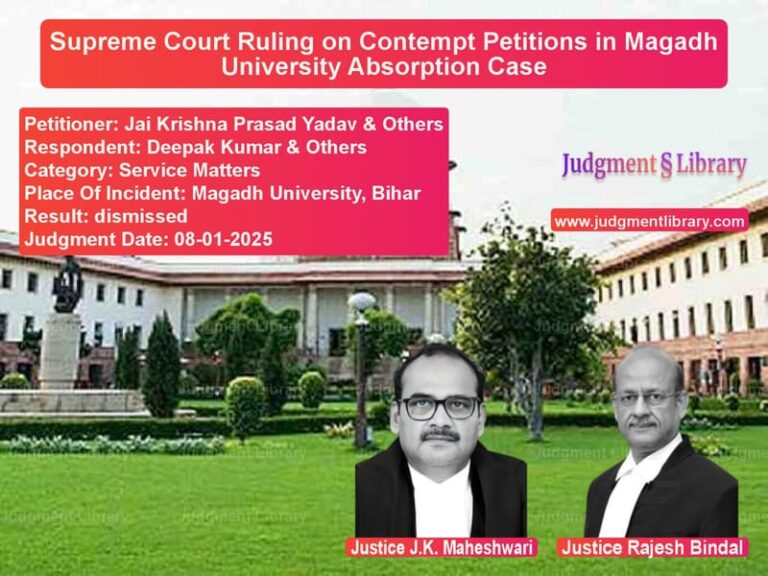Supreme Court Rejects Pay Anomaly Claim: No Stepping Up for Senior Lecturers in Gujarat
The Supreme Court of India has delivered a crucial ruling in Maheshkumar Chandulal Patel & Anr. vs. State of Gujarat & Ors., clarifying that senior government employees cannot claim an automatic right to higher pay based on the salaries of their juniors if the pay disparity results from policy decisions or legitimate service conditions. The ruling dismisses the appeals of directly recruited Assistant Professors in Gujarat who sought salary parity with their junior counterparts who were initially appointed as ad hoc lecturers and later regularized.
The Court upheld the Gujarat High Court’s ruling that the claimants were not entitled to salary step-up under Rule 21 of the Gujarat Civil Services (Pay) Rules, 2002. The judgment ensures that salary increments granted to employees due to service-related benefits cannot be used as a basis for demanding pay parity by others who have not met the same service conditions.
Background of the Case
The dispute arose over a pay anomaly affecting Assistant Professors in Gujarat’s government colleges. The key facts are:
- 1984-1995: A group of 111 lecturers was appointed on an ad hoc basis in government colleges.
- 1998: The University Grants Commission (UGC) Regulations prescribed eligibility criteria for promotion to Senior Scale and Selection Grade.
- 1999: The Gujarat Government issued a resolution allowing the counting of ad hoc service for Senior Scale and Selection Grade eligibility.
- 2001: The appellants were directly recruited as Assistant Professors by the Gujarat Public Service Commission (GPSC).
- 2002: The Gujarat Government framed the Civil Services (Pay) Rules, including Rule 21, which allowed pay step-up when a junior receives higher pay upon promotion.
- 2011: The government issued another resolution confirming that ad hoc service of 111 lecturers (1984-95 Group) would be considered for pay and pension benefits.
- 2015: An order was issued granting Senior Scale and Selection Grade benefits to 85 Assistant Professors from the 1984-95 Group, leading to a pay disparity with GPSC-recruited Assistant Professors.
- 2017: The Gujarat High Court’s Single Judge ruled in favor of the petitioners, ordering pay step-up.
- 2018: The Gujarat High Court’s Division Bench reversed the ruling, rejecting the step-up claim.
- 2024: The Supreme Court dismissed the appeals, upholding the High Court’s decision.
Legal Issues Considered
The Supreme Court examined the following key legal questions:
- Does Rule 21 of the Gujarat Civil Services (Pay) Rules, 2002, apply to the appellants’ case?
- Can ad hoc service be counted for pay fixation when it was not considered for seniority?
- Should direct recruits be granted a pay step-up when their juniors receive higher salaries due to different service conditions?
Arguments by the Appellants
The appellants, represented by Senior Counsel Shyam Divan, contended:
- They were appointed as Assistant Professors through a rigorous GPSC selection process, while the 1984-95 Group was initially appointed on an ad hoc basis.
- The juniors, who were later regularized, should not receive higher salaries than the GPSC-recruited Assistant Professors.
- Under Rule 21, the pay of a senior employee must be stepped up if a junior is promoted and receives a higher salary.
- The classification of ad hoc appointees as a separate category for pay benefits was discriminatory.
- Without a step-up, the purpose of direct recruitment through GPSC would be defeated.
Arguments by the Respondents (State of Gujarat)
The Gujarat Government, represented by Senior Counsel Kanu Agarwal and Swati Ghildiyal, countered:
- The ad hoc lecturers had served for over a decade before their regularization, warranting special treatment.
- Pay benefits granted due to service length and UGC regulations cannot be equated with step-up anomalies covered under Rule 21.
- Rule 21 applies only when a pay anomaly arises from promotion within the same cadre, not when pay differences result from policy decisions.
- The appellants never challenged the resolutions granting benefits to ad hoc lecturers.
- The pay disparity was not a direct result of Rule 21 but rather government policy and UGC guidelines.
Supreme Court’s Observations
1. Rule 21 Does Not Apply
The Court ruled that Rule 21 applies only when a junior is promoted within the same cadre and receives higher pay, not when the disparity arises due to separate government policies.
“The anomaly in pay is not a direct result of Rule 21 but a consequence of the government’s decision to count ad hoc service for pay benefits.”
2. Ad Hoc Service Consideration Was a Policy Decision
The Court emphasized that service benefits for ad hoc employees were granted under specific policies and did not violate pay rules.
“Counting ad hoc service for pay benefits does not entitle direct recruits to demand step-up under Rule 21.”
3. Direct Recruits Cannot Claim Step-Up
The Court found no merit in the appellants’ argument that their pay should be automatically stepped up.
“Stepping up of pay cannot be granted merely because a junior receives a higher salary due to separate eligibility conditions.”
Final Judgment
The Supreme Court ruled:
- The appeals are dismissed.
- Rule 21 of the Gujarat Civil Services (Pay) Rules, 2002, is not applicable to the appellants’ case.
- The pay structure granted to ad hoc lecturers remains valid.
- No relief is granted to the appellants.
Implications of the Judgment
This ruling has significant implications for government employees:
- Prevents Unjustified Step-Up Claims: Ensures that pay step-up is granted only when required by rules, not due to policy-based benefits.
- Upholds Government Policy Decisions: Confirms that states can implement separate pay policies for different employee categories.
- Clarifies Rule 21 Interpretation: Ensures that pay anomalies due to service benefits do not automatically trigger step-up provisions.
- Strengthens Recruitment Rules: Reinforces the distinction between direct recruits and employees who enter service through alternative means.
The Supreme Court’s decision in Maheshkumar Chandulal Patel & Anr. vs. State of Gujarat reinforces the principle that salary increments based on past service conditions cannot be a ground for claiming step-up benefits under standard pay rules.
Petitioner Name: Maheshkumar Chandulal Patel & Anr..Respondent Name: State of Gujarat & Ors..Judgment By: Justice Vikram Nath, Justice Prashant Kumar Mishra.Place Of Incident: Gujarat.Judgment Date: 13-08-2024.
Don’t miss out on the full details! Download the complete judgment in PDF format below and gain valuable insights instantly!
Download Judgment: maheshkumar-chandula-vs-state-of-gujarat-&-o-supreme-court-of-india-judgment-dated-13-08-2024.pdf
Directly Download Judgment: Directly download this Judgment
See all petitions in Employment Disputes
See all petitions in Promotion Cases
See all petitions in Public Sector Employees
See all petitions in Judgment by Vikram Nath
See all petitions in Judgment by Prashant Kumar Mishra
See all petitions in dismissed
See all petitions in supreme court of India judgments August 2024
See all petitions in 2024 judgments
See all posts in Service Matters Category
See all allowed petitions in Service Matters Category
See all Dismissed petitions in Service Matters Category
See all partially allowed petitions in Service Matters Category

